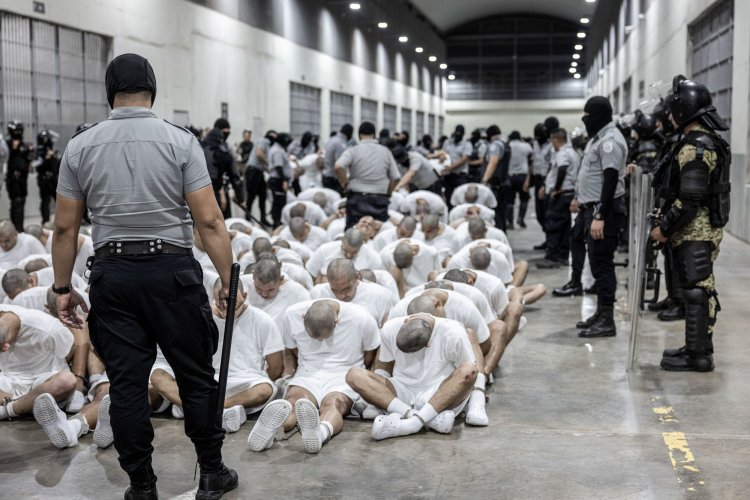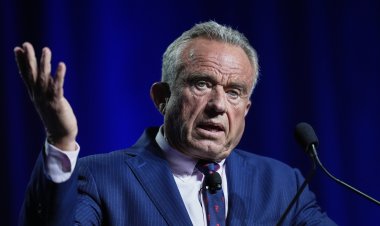Supreme Court rules Venezuelans Trump seeks to deport must have a chance to ‘actually seek’ relief before expulsion
The court issued a 5-4 decision to remove a comprehensive ban on all deportations enacted during Trump’s use of the Alien Enemies Act.

However, in a split decision of 5-4, the justices overturned a trial judge's ruling that had blocked all deportations under Trump's use of the Alien Enemies Act, a seldom-invoked law designed to protect against foreign invasions during wartime.
This ruling will transfer legal proceedings from a class-action lawsuit in Washington, D.C., to federal courts in Texas, where the detainees are currently held. In Texas, the detainees have the opportunity to submit individual petitions against their detentions.
It is noteworthy that Texas courts may not be particularly accommodating to these petitions. Any appeals from those courts will be taken up by the 5th Circuit Court of Appeals, recognized as the most conservative federal appeals court in the country.
Despite this potential hurdle, the Supreme Court's ruling poses a setback for Trump’s effort to quickly deport individuals connected to the Venezuelan gang Tren de Aragua using powers that have been utilized only three times in U.S. history, the last instance being during World War II.
Nevertheless, Trump claimed victory on Monday.
“The Supreme Court has upheld the Rule of Law in our Nation by allowing a President, whoever that may be, to be able to secure our Borders, and protect our families and our Country, itself. A GREAT DAY FOR JUSTICE IN AMERICA!” he stated on Truth Social.
Attorneys representing the Venezuelan nationals facing deportation contend that many of those individuals have no ties to gangs, and that the administration’s evidence of any gang affiliations is minimal or nonexistent. The Supreme Court's ruling clarifies that these detainees are entitled to some level of due process prior to deportation.
Specifically, they must be given the opportunity to “actually seek habeas relief in the proper venue before such removal occurs,” as stated in the unsigned decision, which refers to habeas corpus, a legal term for challenging unlawful imprisonment.
Additionally, the court asserted that the detainees could challenge Trump’s unconventional interpretation of the Alien Enemies Act to include gang activity.
Justice Amy Coney Barrett, a Trump appointee, joined the dissenting opinions of the three liberal justices against the ruling that permits detainees to contest their deportations solely through habeas corpus petitions filed in their place of detention. Barrett, along with Justices Sonia Sotomayor, Elena Kagan, and Ketanji Brown Jackson, would have maintained the earlier lower-court's broader temporary order that halted deportations entirely.
The five justices supporting the lifting of that order included Chief Justice John Roberts and Justices Clarence Thomas, Samuel Alito, Neil Gorsuch, and Brett Kavanaugh.
The Supreme Court’s judgment does not address the status of around 130 Venezuelans already deported to a high-security anti-terrorism prison in El Salvador under Trump’s proclamation invoking the Alien Enemies Act last month.
Those deportees were sent out of the country on flights before U.S. District Judge James Boasberg of Washington, D.C., had the chance to issue an emergency order to halt the deportations. Boasberg is currently considering whether to hold Trump administration officials in contempt for failing to comply with his directive to redirect deportation flights.
The decision made by the Supreme Court on Monday is separate from another case before the justices involving the deportation of Kilmar Abrego Garcia to the notorious El Salvador mega-prison despite an immigration judge stating that he could not be deported there due to the risk of persecution. The administration has asked the justices to overturn a lower-court order for Abrego Garcia's return to the United States.
Discrepancies with Trump's rhetoric are evident as the Supreme Court's ruling regarding the Alien Enemies Act contradicts many statements made by Trump and his aides concerning the rights of foreign nationals.
Stephen Miller, a prominent aide in the Trump White House, has recently criticized judges who have raised issues of “due process” for those targeted under Trump’s Alien Enemies Act, asserting that “the only process” they deserve is deportation.
Despite the ruling undercutting that statement, Miller celebrated the decision on Monday night.
“ALIEN ENEMIES ACT NOW IN FULL EFFECT,” Miller posted on X. “THE FOREIGN TERRORISTS WILL BE ARRESTED AND EXPELLED.”
The Trump administration previously informed many of the alleged “alien enemies” that they had no right to contest that designation. As litigation progressed, the Justice Department did come to acknowledge that the detainees could file habeas petitions where they were held before deportation. However, the administration resisted conceding that the detainees were entitled to adequate notification to contact a lawyer and initiate a lawsuit on their behalf, a requirement that the Supreme Court has now set forth.
The ruling does not address allegations that the Trump administration ignored Judge Boasberg's order on March 15, authorizing flights with Venezuelan deportees to proceed to El Salvador despite the judge's instruction to return them to the U.S. if necessary.
Upon their arrival in El Salvador, the deportees were displayed in front of television cameras while shackled. They were subjected to humiliating treatment, including being stripped and having their heads forcibly shaved before being confined in cells at the notorious prison known as CECOT.
Administration officials assert that they did not defy the judge’s order and have presented various justifications for this, claiming that the order was communicated orally and that the planes were outside U.S. airspace at the time, thus beyond the judge's authority.
Justice Sotomayor, representing the court's liberal justices, remarked that the Supreme Court’s choice to conclude the class-action case overseen by Boasberg “may have life or death consequences,” as detainees struggle to find legal representation to file individual habeas petitions. She also criticized the Trump administration’s defiant stance on this matter.
“The Government’s conduct in this litigation poses an extraordinary threat to the rule of law,” Sotomayor wrote. “We, as a Nation and a court of law, should be better than this.”
Allen M Lee for TROIB News












